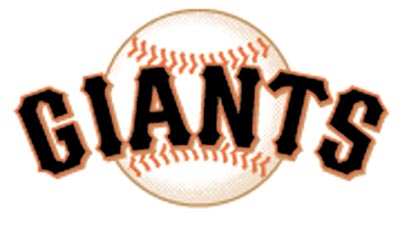In their endeavor to re-sign free agent Aubrey Huff, the San
Francisco Giants had to weigh a number of factors, among them his
production, his age, his appeal to other teams, and the fact they
had little choice. Tuesday they announced they had signed Huff to a
two-year, $22 million contract (with a team option for 2013).
That’s a nice start to what looms as a lively offseason for the
Giants, in which one decision can send ripples through those still
to be made.
SAN FRANCISCO
In their endeavor to re-sign free agent Aubrey Huff, the San Francisco Giants had to weigh a number of factors, among them his production, his age, his appeal to other teams, and the fact they had little choice.
Tuesday they announced they had signed Huff to a two-year, $22 million contract (with a team option for 2013). That’s a nice start to what looms as a lively offseason for the Giants, in which one decision can send ripples through those still to be made.
Huff was the only no-brainer in the bunch. Not only was he the Giants’ best offensive player in 2010, he became their face (the one with the mischievous smile) as they won their first World Series since 1954. Buster Posey’s genial stoicism may play better over the long haul, but for one shooting star of a season, you couldn’t find a better guy to lead the parade than Huff.
So you don’t obsess that the Giants, according to general manager Brian Sabean, had to top another team’s bid in order to overpay for his services. Or that he’s about to turn 34, and that 2010 was, in terms of power numbers and average, just the fourth- or fifth-best season of his career. Or that the money committed to Huff makes it more difficult to keep that old gang of theirs intact. That was never going to happen anyway. It never does, regardless of how the season turns out.
But Huff is a good start. And if you’re thinking it qualifies as a perfunctory bit of business, we kindly refer you to the New York Yankees and their no-brainer free agent Derek Jeter, currently shooting spit wads at each other through the national media.
Meanwhile, still waiting to bat for the Giants:
Juan Uribe. Like Huff, an easy guy to like. But a more complicated case, given that he accepted back-to-back fiscally responsible one-year deals from the Giants when he’d hoped to do better on the open market.
Coming off a career power year in which he made $3.25 million, and with few comparable infield talents available, you’d figure him to be thinking, what? — two to three years at $5 million per? You’d also figure the Giants won’t go as far over market value to keep him as they did with Huff Daddy.
Pat Burrell. Not a good idea, and here’s where decisions begin to intersect. For starters, he gives you only a bat, and a maddeningly streaky one at that. Secondly, if you bring both him and Cody Ross back, it gives you no place to put Huff if you need first base to stash Pablo Sandoval or make room for Brandon Belt (.352 with 23 homers and 112 RBI in his first minor league season).
Jonathan Sanchez. He leads the team’s salary arbitration-eligible class, and is its most interesting call. He had what an agent would call a breakthrough season. The Giants gave Matt Cain and Tim Lincecum multiyear deals during their arbitration years. At the very least, Sanchez will cost the Giants more than the $2.1 million he earned in 2010.
Cody Ross. Whatever a $4.45 million, one-year deal plus a breakout postseason equals, you’d figure it to be a fit for him and the team.
Javier Lopez. Mimicked the season he had with Boston in 2008 that earned him $1.3 million in ’09. Ripple effect: Could Dan Runzler do the same job more cheaply?
Andres Torres. He had a fine 2010 but doesn’t have the body of work that would have other teams frothing at the mouth. A $1 million, one-year deal would more than double his salary and still be a bargain.
Ramon Ramirez, Mike Fontenot, Santiago Casilla and Chris Ray. Please hold, an operator will be with you shortly.
And you thought the Giants’ season was needlessly and relentlessly dramatic?
Keep in mind Sabean has been through this before. After 2002, the Giants had to segue immediately from excruciatingly meaningful postseason games to long-term planning. That year they had to make quick calls on Jeff Kent, David Bell (the Willie Mac Award winner), Kenny Lofton, Reggie Sanders, manager Dusty Baker and Sabean himself.
Not all the decisions that offseason stand the test of time (hello, Edgardo Alfonzo), but together they resulted in a team that led the division from wire to wire in 2003.
There are no guarantees this time around. But there’s nothing like a first-pitch strike to get the party started.
— Column by Gary Peterson, Contra Costa Times










